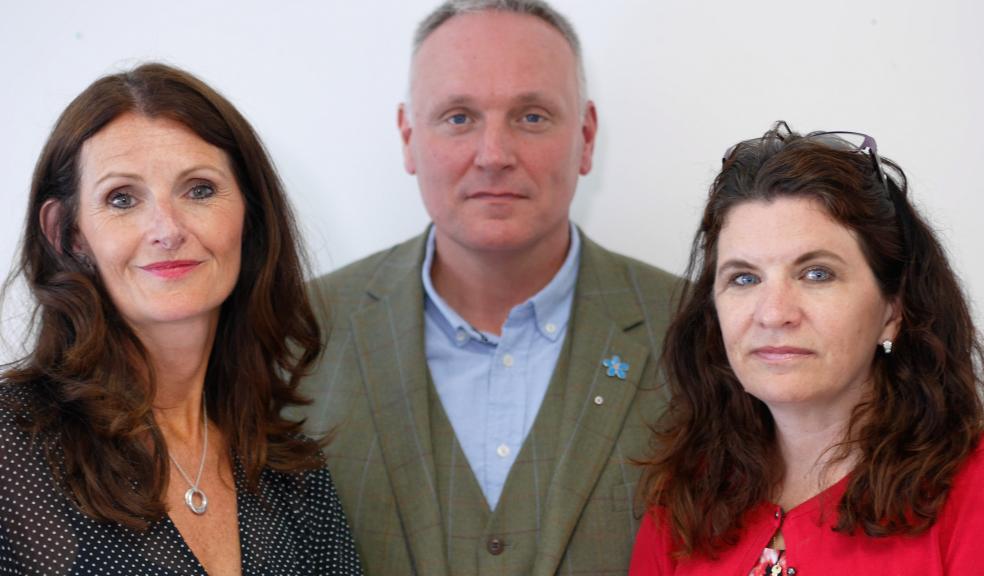
Parents issue meningitis vaccine appeal
A group of parents who each lost a teenager to meningitis have issued a hard-hitting warning to other parents to ensure their children take up a lifesaving vaccine against the disease.
Parents including; Michelle Bresnahan, Paul Gentry, Julia Styles and Ailsa Sugrue – are spearheading charity Meningitis Now's campaign to increase Men ACWY vaccine uptake amongst young adults.
United in their grief, they have taken the brave step to speak out about the pain of their loss to prevent similar tragedies happening to other families.
Speaking on behalf of the group, Michelle Bresnahan said: "We all know only too well how devastating this disease can be and have seen the worst it can do, destroying young lives and tearing apart those who remain.
“We want to appeal to all parents to ensure their children are vaccinated, especially those who are heading off to university this autumn.
“We’re also calling on parents to ask another parent in their son’s or daughter’s friendship group to do likewise – the more awareness we can raise the better.
"If by speaking out and sharing our tragic stories we can persuade other parents and their children to act then our children's deaths will not have been in vain.
"No one should be left counting the cost of inaction when there is a quick and effective vaccination freely available."
Meningitis Now’s campaign coincides with a campaign by Public Health England to increase vaccination rates among young people.
The Men ACWY vaccine has been offered to all 17 and 18-year-olds and all university entrants, aged 19-25, free on the NHS since August 2015, to combat the rise in Men W cases in adolescents. But cases continue to increase in England, from 30 in 2011/12 to 210 last year (2015/16), up from 176 the previous year.
Meanwhile uptake of the vaccine across the country remains stubbornly low at about one-third of those eligible.
Dr Tom Nutt, chief executive at Meningitis Now, said: “This is a brave step by these parents to speak out and a timely reminder to others to make sure young people get the Men ACWY vaccine.
“Teenagers are the second most at risk group of contracting meningitis after babies and toddlers and up to a quarter of students carry the bacteria that can cause meningitis compared to one in ten of the general population.
“Over 17 per cent of all cases of Men W occur in the 14 to 24 age group, with first year students being at particular risk.
“We remain deeply concerned about the low level of vaccine uptake - just 33% last year, which remains disappointingly below the 2015 uptake rate of 38%.”
“It’s vital that young people and their parents are not complacent about the threat of meningitis - we urge them to take up this lifesaving vaccine.”
Those who are due to leave school this summer, or who are aged 17 – 18 and not in school (born between 1 September 1998 and 31 August 1999) are now eligible for the vaccine and should contact their GP practice.
Dr Mary Ramsay, Head of Immunisation at PHE said:
“The MenACWY vaccination programme will save lives and prevent lifelong and devastating disability.
“We have seen a rapid increase in Men W cases across England in recent years and vaccination is the most effective way of protecting against infection.
“Young people are particularly at risk as they are carriers of the disease. Being in confined environments with close contact, such university halls, hostels when travelling, or attending festivals, increase the chances of infection if unprotected.
“Get vaccinated as soon as possible, remain vigilant and seek urgent medical help if you have concerns for yourself or friends.”
New entrants to higher education (university freshers) are also eligible. Anyone who is eligible and has missed vaccination in previous years remains eligible up to their 25th birthday and is urged to have the MenACWY vaccine.“
Meningitis Now is working towards a future where no one in the UK loses their life to meningitis and everyone affected gets the support they need.
It does this by funding research into vaccines and prevention, raising awareness so people know what to look for and what action to take if they suspect meningitis and rebuilding futures by providing dedicated support to people living with the impact of the disease.
For more information and to donate visit www.meningitisnow.org













